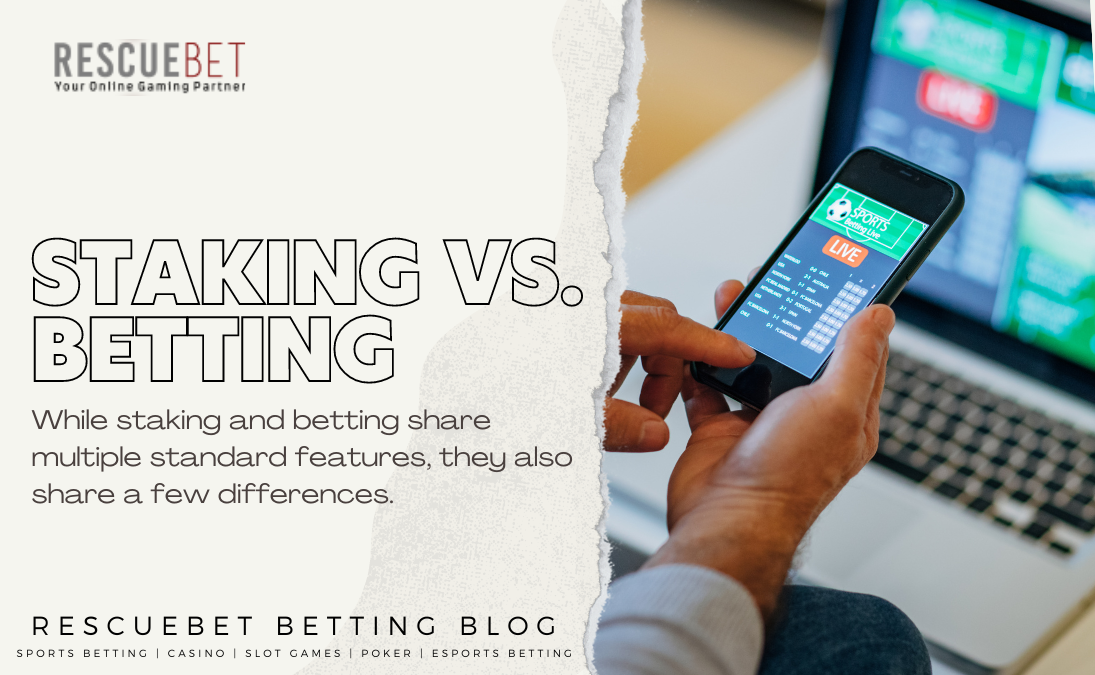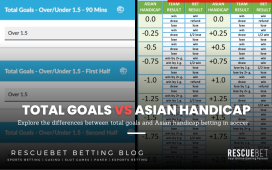Staking and betting are two betting terms usually used interchangeably. However, while staking and betting share multiple standard features, they also share a few differences. In general betting terms, staking and betting mean making a wager on the outcome of an event. However, betting refers to bets made with cash, chips, or cryptocurrencies, while staking refers to making a wager using money, property, and other types of assets (bonds, stocks, etc.).

Staking
Staking in betting is the amount a punter is willing to wager on a particular outcome occurring. A stake of $50 or $100 indicates the player is ready to wager $50 or $100 in a single bet. If a punter is willing to spend $100 on betting, they should pick a stake amount relative to their level of risk and reward. If a punter places a 6% staking restriction, then a punter will not stake more than $6 on a single betting market, event or outcome. If a punter loses, they still have 94% of their bankroll left to place wagers. Alternatively, a high staking amount can result in quick losses. For example, a punter willing to bet big and place a wager of 25% of their bankroll can end up losing their entire betting funds after just four chances. Staking is an essential component of betting because it enables a punter to manage their level of risk.
1. Staking In Sports Games
Punters can place wagers on sports betting outcomes such as basketball or football. A stake is an amount a punter is willing to wager, and the payout depends on the odds set by the sports betting provider. A stake of $10 can return $1 to $100 depending on the type of wager, sport, sport, sport, the kind of sport, the betting market, and the bet’s odds.
2. Staking In Casino Games
A poker stake refers to the amount of money a player is willing to play in each round on a poker table. A high-stakes poker game usually has no upper betting limit, and the profit or loss in such games is exceptionally high. A $10 stake is a $10 wager at the start of the round before anyone raises at the table. Staking is also popular in blackjack, and the stake at each table refers to the minimum and maximum amount a punter can wager at a particular game/table/casino. A $10,000 blackjack table requires a punter to place a wager of $10,000 on each round, with the punter winning the same amount if they win the bet. However, a punter can win $15,000 if they get blackjack or even more if they choose to double or split and double.
3. Staking In Crypto
Staking is a popular feature of cryptocurrencies and enables crypto holders to earn interest on their holdings in their digital wallets. However, stake, crypto staking, and bet staking are different terms with different meanings and uses.
Betting
Betting encompasses a broader range versus staking. While staking may be narrower and more expansive in interpretation, betting is more comprehensive and lacks understanding. Betting makes a wager to win a profit in an event with at least two or more possible outcomes. A punter can place a bet on several games and events such as the FIFA football World Cup, the Rugby League, The MLS, the NBA, the IPL, the Olympics, the Champions League, and more. A punter also has access to Esports games and events, casino games, slot games, virtual games, lottery-based games, card games, and more. Punters adopt different betting strategies based on online or offline wagers, the type of wager, betting event, odds on offer, and specialty. Then, within each wager, a punter may adopt a different betting strategy such as the Paroli betting strategy, the D’alembert betting strategy, the Fibonacci betting sequence, Miller’s betting system, Maria Staking plan, progressive betting, and other types of betting strategies.
Betting Using Crypto
Punters can make wagers on different betting markets using popular cryptocurrency options. Making wagers using crypto allows several crypto holders to place crypto wagers without converting the crypto to fiat currency first.
























